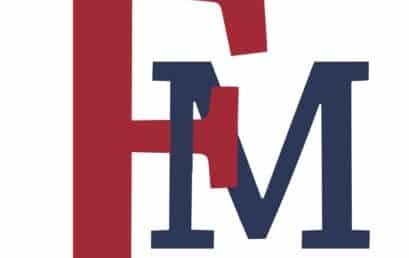ENGR 201 – Engineering Graphics
Prerequisites/Corequisites: Credit Hours: Min: ; Max: 3 Description: Students are introduced to the fundamental principles of engineering graphics – sketching, line drawing, projections, and solid modeling. Students will learn how to apply engineering graphics principles to generate and interpret technical drawings and solid models. Computer Aided Design software (e.g., AutoCAD®, SolidWorks®) will be used.
PHYS 201 – Technical Physics II
Prerequisites/Corequisites: Take MATH-201. (Required, Previous or concurrent). | Take PHYS-201L. (Required, Concurrent). Credit Hours: Min: 4; Max: Description: Calculus-based introduction to classical mechanics and dynamics. Topics include vectors and vector notation; Newton’s Three Laws of Motion; force; motion in one, two, and three dimensions; linear momentum; torque; rotational motion; angular momentum; work-energy; kinetic and potential […]
MATH 201L – Calculus I Workshop
Prerequisites/Corequisites: Take MATH-201. (Required, Concurrent). Credit Hours: Min: 1; Max: Description: Intensive calculus workshop for students enrolled in Mathematics 201. Students work collaboratively in small groups on problems that emphasize the key ideas of calculus. The workshop will also introduce students to technology that can automate and help visualize calculus concepts. Assessed as S (Satisfactory) […]
ENGR 482 – Mechanical Engineering Senior Design
Prerequisites/Corequisites: Take ENGR-370 ENGR-411. (Required, Previous). Credit Hours: Min: 4; Max: Description: This course serves as the capstone design experience for mechanical engineering students. The course involves the design and development of solutions to real-world mechanical engineering problems. Students will demonstrate the ability to work in teams and solve problems, which include multiple realistic constraints […]
ENGR 402 – System Dynamics and Controls
Prerequisites/Corequisites: Take ENGR-250 ENGR-301 ENGR-310 MATH-301. (Required, Previous). Credit Hours: Min: 3; Max: Description: The course covers dynamic modeling and simulation of systems with mechanical, hydraulic, thermal, and/or electrical elements. Topics include frequency response analysis, stability, and feedback control design of dynamic systems.
ENGR 400 – Thermodynamics and Heat&Mass Transfer
Prerequisites/Corequisites: Take ENGR-250 ENGR-370 PHYS-200 MATH-301. (Required, Previous). Credit Hours: Min: 4; Max: Description: The course covers applications of the laws of thermodynamics to closed and open systems. Topics include steady one-dimensional conduction, lumped parameter analysis, convection, radiation, and diffusion.
ENGR 370 – Fluid Mechanics
Prerequisites/Corequisites: Take ENGR-250 ENGR-301 MATH-301 MATH-306 PHYS-200. (Required, Previous). Credit Hours: Min: 3; Max: Description: The course introduces the concepts and applications of fluid mechanics and dimensional analysis with an emphasis on fluid behavior, internal and external flows, applications of conservation equations to different engineering systems, and analysis of engineering applications of incompressible pipe systems.
ENGR 330 – Engineering Economy
Prerequisites/Corequisites: Take ENGR-250 or ENGR-252. (Required, Previous). Credit Hours: Min: 3; Max: Description: . Concepts and techniques of analysis for evaluating the value of products/services, projects, and systems in relation to their cost. A major objective of this course is to develop the students understanding of economic equivalence, the time value of money, financial uncertainty […]
ENGR 250 – Mechanics of Materials
Prerequisites/Corequisites: Take ENGR-101 ENGR-301. (Required, Previous). | Take MATH-301. (Required, Previous or concurrent). Credit Hours: Min: 3; Max: Description: The course covers determination of stresses, deflections, and stability of deformable bodies. The course will include methods to identify, formulate, and solve problems related to the effect of forces on deformable bodies. An emphasis will be […]
ENGR 220 – Materials Engineering
Prerequisites/Corequisites: Take PHYS-201 CHEM-101. (Required, Previous). Credit Hours: Min: 3; Max: Description: This course is designed to introduce students to the structures and properties of metals, ceramics, polymers, and composites. In addition, students will gain an understanding of the processing and design limitations of these materials, as well as being introduced to new classes of […]
ENGR 101 – Introduction to Engineering
Prerequisites/Corequisites: Take MATH-132 or MATH-137. (Required, Previous or concurrent). Credit Hours: Min: 3; Max: Description: Introduction to the engineering profession, applications of engineering principles and approaches, integrated systems approach to problem solving, overall goals and components of the engineering programs, career opportunities, development of engineering work skills, and communication skills. In addition, the course covers […]
PHYS 220 – Computational Methods for Phys/Engn
Prerequisites/Corequisites: Take PHYS-201. (Required, Previous). Credit Hours: Min: 3; Max: Description: An introduction to the computational tools and numerical methods used in physics and engineering. Students will use both spreadsheets (e.g., Excel) and numerical packages (e.g., Python) to obtain numerical solutions to a wide variety of physical problems, including: motion with air resistance, oscillations, nuclear […]
